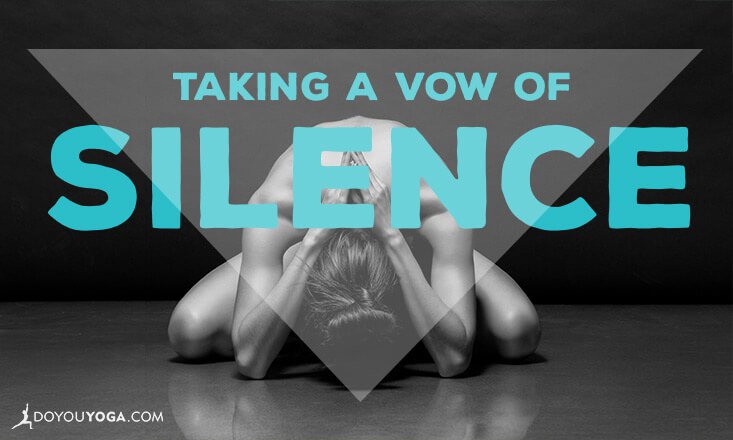The benefits of taking a vow of silence, or mouna, are incalculable. This practice develops will power, helps check in with your tendency towards impulsive speech, encourages the practitioner to observe truth, control anger, and channel emotions.
A mouni (one who practices mouna) uses measured words and his speech is careful and tactful. He is thoughtful and considerate of others, weighing each word before it comes out of his mouth. He can stay in seclusion for a long time.
To develop a practice, start small. What amount of time can you devote to practice? An hour? Thirty minutes? 10? Set realistic goal and get started.
Step 1: Stop talking.
Mouna doesn’t just mean silence of your words. But this is a good place to start. Silence obviously refers to verbal speech, but it also includes nonverbal forms of communication. Think computer, iPad, iPod, smart phone, etc. Simply stop talking, and power down the device.
Step 2. Introspect.
Become introspective by observing your thoughts and actions. Do you have an impulse to speak or reach out to someone?
Many people suffer from an obsessive need to speak, be heard, or rant about something or someone all the time. Suppressing this urge can feel restrictive and frustrating. Use this time to observe the mind.
Step 3. Develop mouna of the mind.
Real mouna is silence of the mind. Physical mouna from avoiding verbal and nonverbal communication eventually leads to silence of the mind. This is one way to develop meditation practices in your everyday life.
When you awaken in the morning, be mindful of being awake. When you eat, drink, prepare food, get dressed, go to the bathroom, brush your teeth, walk, breath, drive the car, and go to yoga asana class, be mindful of your actions with a focused and silent mind.
Step 4. Allow mouna to happen.
Forced mouna is an effort and is wrestling with the mind. It must be natural. If you live in truth, mouna will come by itself. You will begin to notice the thought waves of the mind without emotion or judgement. There will be absolute peace.
Irritability vanishes. You become a better listener. Your speech can now become carefully constructed and well-articulated.
Keep these tips in mind and try them out — you’ll find that instead of uncomfortable silence, you’ll find peace and mindfulness inside and out. Om Shanti.


